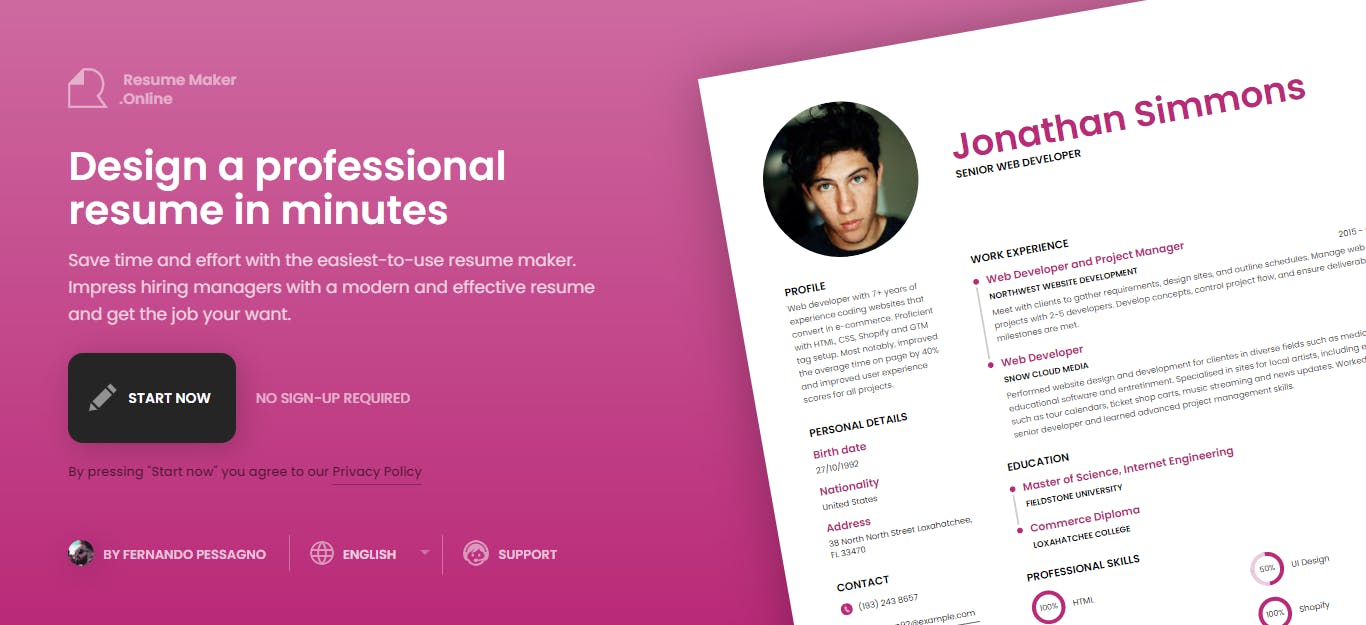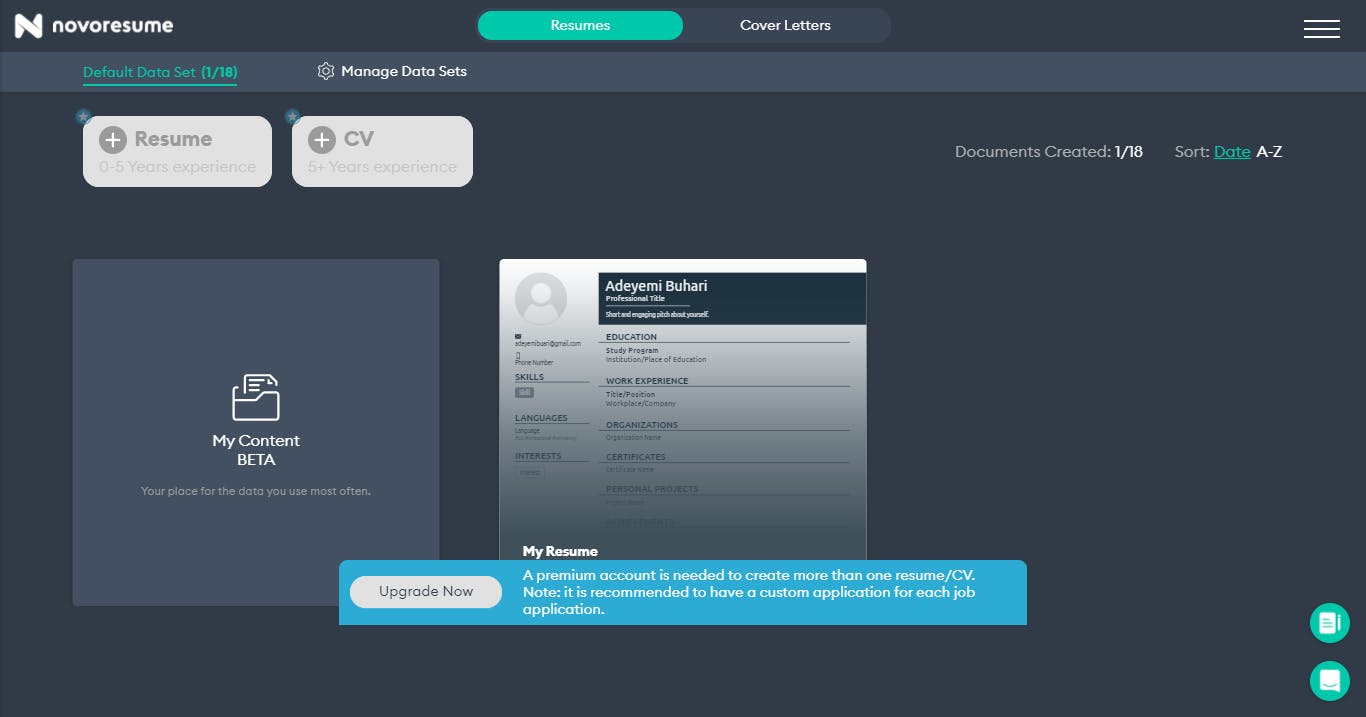The Requirements To Ace Technical Interviews
In recent days, I've been thinking about the solution to reducing the number of rejection messages developers receive from recruiters, as well as the cause. As developers, we identify problems and devise solutions. After identifying the problems encountered by developers in an interview, I will provide solutions to each problem in this article. We all know that the purpose of a technical interview is to see how efficiently you can approach a real-world problem, your communication skills, how quickly you can capture the recruiter's attention, and how well you can work in a team.
Before I continue, I'd like to highlight four things to keep in mind when applying for jobs.
- RESUME: A resume is one way to describe yourself, your accomplishments, your years of experience, and your educational status. The platform with an awesome template to create a resume is listed below.
Resume Maker
*resumemaker.online

Novoresume
*novoresume.com/resume-templates

LINKEDIN: A place where you can promote yourself, share your accomplishments with the public, network with like-minded people, and sell yourself. Thousands of jobs that match your requirements can be found on this platform. A complete and strong Linkedin profile will entice recruiters to contact you without the need for an application. You can follow me on LinkedIn at linkedin.com/in/adeyemi-buhari-3aa4781b5.
PORTFOLIO: A developer portfolio is a section of your website that showcases your personal project or an open-source project on which you worked. It is critical and recommended that you have two to three large projects in your portfolio so that your value does not depreciate.
EMAIL: Actually, if you are self-assured enough, you can send emails to companies. Don't just apply for jobs; make connections via email with companies, experts in your field, and high-profile individuals. I'll show you how to find anyone's email address online using the resources I'll provide.
WHAT IS A TECHNICAL INTERVIEW??
 Technical interviews include problems that necessitate analytical reasoning.
The goal of the technical interview is not to deceive you with riddles, brainteasers, or impossible questions. Instead, it is to see how you deal with real-world problems, such as those you might face if you get the job!
Technical interviews include problems that necessitate analytical reasoning.
The goal of the technical interview is not to deceive you with riddles, brainteasers, or impossible questions. Instead, it is to see how you deal with real-world problems, such as those you might face if you get the job!
SOLUTION TO TONS OF REJECTION MAIL
Learn the fundamentals of data structures and algorithms, including time complexity, space complexity, and code efficiency.
Check that the skills on your resume/CV meet at least 70% of the company's requirements.
Understand your target audience. If you're interviewing with a recruiter who doesn't have a background in programming, emphasize your soft skills and avoid getting too technical. Show off your technical knowledge if you're interviewing with a software developer!
There is more confidence in admitting that you have no idea than in pretending to know everything. Nobody is an island of knowledge, and the recruiter does not expect you to be an expert in everything. Maintain your value by not letting your guard down.
Fluent and understandable communication skills are required.
During or after the interview, establish a connection with the interviewer.
Before you begin writing code, ask clarifying questions.
Finally, be prepared for any type of question, technical or nontechnical. I hope it was helpful to you?? Since the subject involves networking and connections, you can reach out to me via the contact below.
Twitter: twitter.com/AdeyemiBuhari3
Linkedin: linkedin.com/in/adeyemi-buhari-3aa4781b5
